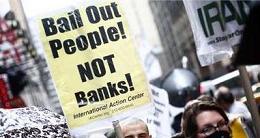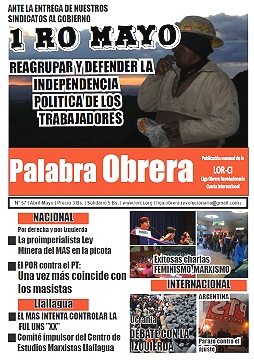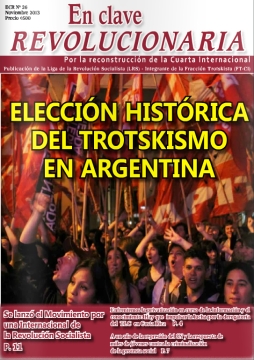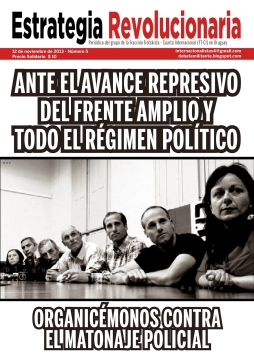United States
The social crisis is already here
03/10/2008

The latest report on US unemployment brought no good news: only in
September, 100,000 jobs were destroyed. These are in addition
to the 84,000 jobs lost in August, when unemployment climbed to 6.1%;
since the beginning of this year, more than 600,000 jobs have
disappeared. This index is one of the highest since the 2001
recession; it comes in addition to the price increase of basic products,
fuel and the enormous indebtedness of working-class families.
The first social consequences of the crisis are reflected in
unprecedented pictures like the "tent cities," that have grown
alongside big cities like Los Angeles and San Francisco. This is
one of the most somber snapshots: thousands of people living in their
cars or tents with their families. Many of the inhabitants of these
precarious "cities" are working-class families (most of them are black
and Latino, the most affected by "garbage" mortgages). Many
left their homes, fleeing from evictions and debts. Fuel to heat
houses has already increased 30% since 2007, and some months before
winter in the US, the government is threatening to reduce heating
assistance for low-income households, as part of the cuts in social
programs (largely underfunded, because of tax cuts for the wealthy).
In April, the government had already announced that 28 million people
would need food stamps to be able to bring food to their tables: the
biggest increase since the 1960’s.
The most serious thing is the fact that the bursting of the real
estate bubble, begun in 2007, is deepening bad living conditions for
a big part of workers and poor people (it is estimated that
only 25% of workers have wages that cover their needs including health
insurance). Before the crisis erupted, in the wealthiest country on
earth, 51.7 million were already living in poverty, 35 million
suffered hunger during 2006, and 50 million had no medical insurance
(there is no public nor union health).
In August alone, more than 300,000 homes got an eviction notice: 1
out of every 416 properties in the US (CNBC, September 12). Although
an assistance package for small debtors was approved in May, this was
hardly enough to refinance the debts of one sector, but millions of
foreclosures are continuing.
With this background, the biggest bailout in history was
orchestrated: billions of dollars to bail out the firms that got rich
during recent decades. Despite the defeat of the first vote in
Congress, both the Democratic candidate Barack Obama and the
Republican John McCain, as well as the leaders of both parties, have
shown their desire to support the big firms and the Bush
administration, the most unpopular in the history of the country (see
<http://www.ft-ci.org/article.php3?i...>
). Despite its
hypocritical campaign speeches, the Democratic Party has proven once
again that it is no alternative for the millions that are hoping
for "the change" that Obama is hawking so much.
Voices of protest are heard
Discontent with the economic situation grew with the rejection
of the Paulson & Co. bailout plan. Everyone knows who will pay the
bill. Bush was clear: "These measures will require that we use a
significant amount of taxpayer dollars," referring to the $700
billion they are trying to pass in Congress. According to opinion
polls, more than 70% rejects the measure because they see that they will be the ones who lose their jobs, who owe money: the
workers and the impoverished middle sectors will pay for the
crisis.
Although so far the main obstacles have come from the opposition
inside Congress, the rejection has made itself felt, even though
passively, till now. Protests have been carried out, mobilizations in
front of banks and public offices, and in the very heart of Wall
Street, against the “Bailout”. The main slogans aim against the
Republican administration and rescuing the firms with tax dollars.
As in the election race, in spite of the hypocrisies that get
broadcast on television, neither of the parties is an alternative.
With few differences, Democrats and Republicans have shown their
loyalty to Wall Street and the big firms, not to workers or the
people. The only way to alleviate this crisis is to force the ones
who provoked it, to pay: it is necessary to suspend all foreclosures,
distribute the hours of work among all available workers to fight
against unemployment, put into operation a public works plan under
workers’ control, to repair the infrastructure of the country and
create millions of jobs financed by taxes on the big fortunes. Not
one dollar for the banks!
These and all the measures necessary to confront the crisis can only
be imposed through the mobilization of workers and the impoverished
sectors, independent of the Democratic and Republican parties.
Translation by Yosef M.


















